North Carolina Medical License Defense Attorney
Protecting Your Medical Career from NC Medical Board Actions
If you’ve received notice of a complaint from the North Carolina Medical Board (NCMB), your license, livelihood, and reputation are at risk. The NCMB regulates physicians, physician assistants, anesthesiology assistants, and perfusionists — and even a single complaint can trigger an investigation leading to license suspension, revocation, or denial.
Having an experienced North Carolina medical license defense attorney representing you early in the process can make a critical difference in protecting your medical career and future.
What To Do If You Receive an NCMB Complaint Notice
If you’ve been contacted by the Board, take these steps immediately:
Do not ignore the notice. Failing to respond can result in loss of rights or default sanctions.
Do not contact the complainant. Direct communication may complicate your defense.
Do not respond to the Board without counsel. Your initial statements can impact the entire case.
Contact a defense attorney immediately.
Why You Need a Medical License Defense Lawyer
The NCMB investigates complaints to protect the public, but the process can feel one-sided and intimidating. A qualified medical license defense lawyer ensures your voice is heard and your rights are protected at every stage.
Common issues that can lead to a NCMB investigation include:
Allegations of substandard medical care (delayed diagnosis or treatment)
Improper prescribing practices, especially involving controlled substances
Unprofessional or unethical conduct, including billing fraud or misrepresentation
Sexual misconduct or boundary violations
Substance use or impairment concerns
Criminal convictions or disciplinary actions in another state
Complaints may come from patients, employers, or other professionals. Once received, the NCMB reviews whether the conduct could violate the North Carolina Medical Practice Act (N.C. Gen. Stat. § 90-14 et seq.) and initiates an investigation if warranted.
Understanding the North Carolina Medical Board Complaint Process
Facing an NCMB complaint is not a customer service dispute — it’s a formal regulatory investigation that can endanger your ability to practice medicine in North Carolina.
Here’s how the process typically unfolds:
Complaint Filed – The NCMB reviews the complaint to determine jurisdiction and potential rule violations.
Investigation – Board investigators collect records, interview witnesses, and notify the licensee. You may be asked to provide a written response or appear for an interview.
Board Review – The case may be dismissed, resolved informally (for example, through a letter of concern), or referred for formal disciplinary action.
Formal Hearing – If not resolved informally, the case proceeds to a hearing. This is your opportunity to challenge the Board’s evidence and present your defense with help from your attorney.
An experienced medical license defense attorney can guide you through this process, ensure compliance with procedural requirements, and build the strongest defense possible.
Protect Your Medical License — Contact Brooks Peterson
Your medical license represents years of study, training, and commitment to patient care. A single complaint or misunderstanding should not destroy your career.
Brooks Peterson PLLC represents physicians, PAs, and other licensed medical professionals across North Carolina facing investigations or disciplinary hearings before the NCMB.
If you’ve received notice from the Board, contact the office today to speak confidentially with a medical license defense attorney who understands how to protect your license and your reputation.
Possible Disciplinary Actions by the NC Medical Board
The NCMB’s disciplinary options are broader than most other boards in North Carolina.If the Board does find a violation, it may impose one or more of the following sanctions:
(1) probation with or without conditions; (2) limitations and conditions on the ability to practice; (3) public reprimand; (4) monetary redress; (5) public letter of concern; (6) requiring the provision of free medical services; (7) requiring satisfactory completion of treatment programs or remedial or educational training; (8) a fine; (9) denial of licensure; (10) annulment of a license; (11) suspension of a license; or (12) revocation of a license.
Because all public disciplinary actions are posted on the NCMB website, even a “minor” sanction can damage your professional standing. It’s essential to consult with a North Carolina medical license defense lawyer as soon as you are notified of an investigation.
The NCMB Formal Hearing Process
Formal hearings before the NCMB are adversarial proceedings similar to courtroom trials. They are typically held before a panel of Board members, with a presiding officer and legal counsel advising on procedure.
Important rights during this process include:
At least 30 days’ written notice of charges and hearing date
The right to be represented by counsel
The ability to cross-examine witnesses and present your own evidence
The Board’s burden of proof by a preponderance of the evidence
A court reporter’s record, which becomes part of the public file
After closing arguments, the Board deliberates privately and issues a Final Order, which may include sanctions ranging from a reprimand to revocation of your license.
Your medical license defense lawyer will prepare your case, present evidence, and protect your rights during every phase of this process.
Appealing an NCMB Decision
If you disagree with the NCMB’s final decision, you have 30 days to file an appeal with the Superior Court in your county or in Wake County, where the Board is headquartered.
Our firm assists medical professionals by:
-Reviewing the administrative record for legal errors
-Drafting and filing the notice of appeal
-Preparing legal arguments for court review
Appeals are time-sensitive and complex. Missing a deadline can permanently forfeit your right to challenge the Board’s decision. Speak with an experienced medical license defense attorney immediately if you are considering appeal.





